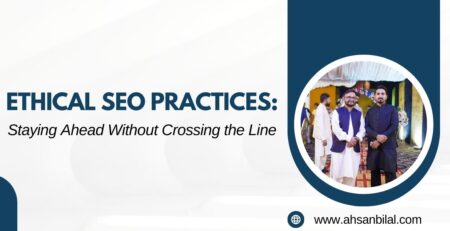How Does Technical SEO Impact User Experience?
In the digital landscape, search engine optimization (SEO) is a critical factor that determines the success of a website. While content, keywords, and backlinks often steal the spotlight, technical SEO is the unsung hero that can significantly enhance the user experience. It’s the behind-the-scenes work that ensures your website not only ranks well on search engines but also provides visitors with a seamless and satisfying experience. But what exactly is technical SEO, and how does it impact user experience? Let’s dive in.
What is Technical SEO?
Technical SEO refers to the optimization of your website’s infrastructure to make it easier for search engines to crawl, index, and understand your site. This process includes elements like website speed, mobile optimization, site architecture, and security. Unlike on-page SEO, which focuses on content and keywords, technical SEO is about creating a strong foundation that enables your website to perform efficiently.
The Association Between Technical SEO and Client Experience
Technical SEO is not just about pleasing search engine algorithms; it’s also about enhancing user experience. When you optimize your website technically, you’re ensuring that visitors can navigate your site easily, find what they’re looking for, and have a positive interaction. This is the way specialized Search engine optimization influences client experience:
Improves Website Speed and Performance
One of the most crucial aspects of technical SEO is optimizing the loading speed of your website. In today’s fast-paced digital world, users expect a website to load within 2-3 seconds. In the event that it takes more time, they’re probably going to leave, bringing about a high bob rate.
How It Affects User Experience: A faster website keeps users engaged and reduces frustration. When pages load quickly, visitors can browse through your content effortlessly, leading to higher satisfaction and better chances of conversion. Moreover, search engines like Google prioritize fast-loading websites in their rankings, giving you an edge over competitors.
Technical SEO Tips for Speed Optimization:
- Compress images and videos to reduce file sizes.
- Minimize HTTP requests and use a Content Delivery Network (CDN).
- Leverage browser caching to store data locally on users’ devices.
Enhances Mobile Optimization
With mobile devices accounting for over half of global web traffic, mobile optimization is no longer optional—it’s essential. Technical SEO ensures your website is responsive and adapts seamlessly to different screen sizes.
How It Affects User Experience: A mobile-friendly website offers a smooth browsing experience, whether users are accessing your site from a smartphone, tablet, or desktop. Without mobile optimization, users may struggle with navigation, encounter broken elements, or deal with slow loading times, which can drive them away.
Technical SEO Tips for Mobile Optimization:
- Implement a responsive design that adjusts to various screen sizes.
- Utilize Google’s Versatile Test to distinguish and fix portable ease of use issues.
- Optimize touch elements and ensure buttons are easily tappable.
Ensures a Clean and Organized Site Structure
Technical SEO involves creating a logical site architecture, including URL structure, internal linking, and breadcrumb navigation. A well-organized website structure helps search engines understand your content better and improves user navigation.
How It Affects User Experience: A clear site structure makes it easy for users to find the information they’re looking for. When visitors can easily navigate your site, they’re more likely to stay longer, explore different sections, and engage with your content. This can also lead to higher conversions and lower bounce rates.
Technical SEO Tips for Site Structure:
- Utilize spellbinding, watchword rich URLs for better getting it.
- Implement internal links to guide users to related content.
- Add breadcrumb navigation to enhance user orientation.
Optimizes for Secure Browsing with HTTPS
Security is a first concern for the two clients and web crawlers. Google has made HTTPS a ranking factor, which means that websites with an SSL certificate (indicated by “https://” in the URL) are prioritized over those without it.
How It Affects User Experience: A secure website builds trust and confidence among users, especially when they’re sharing personal information or making online transactions. If visitors see a “Not Secure” warning in their browser, they’re more likely to leave your site, resulting in a loss of traffic and potential sales.
Technical SEO Tips for Security:
- Introduce a SSL authentication to scramble information between your site and clients.
- Regularly update your website and plugins to protect against vulnerabilities.
- Carry out safety efforts like firewalls and ordinary reinforcements.
Boosts Accessibility with Structured Data
Structured data, also known as schema markup, is a technical SEO element that helps search engines understand the context of your content. It allows you to enhance your listings with rich snippets, such as star ratings, prices, or FAQs.
How It Affects User Experience: By providing additional information in search results, structured data can attract more clicks and improve the user journey. It also makes your content more accessible to visually impaired users who rely on screen readers, ensuring an inclusive browsing experience.
Technical SEO Tips for Structured Data:
- Use schema markup to highlight key content elements.
- Test your structured data using Google’s Rich Results Test tool.
- Implement schema for local SEO, product listings, and events.
Reduces Crawl Errors and Improves Indexability
Technical SEO guarantees that web search tools can creep and record your site effectively. This involves fixing broken links, eliminating duplicate content, and submitting XML sitemaps.
How It Affects User Experience: A website free of errors provides a smoother browsing experience. Users won’t encounter 404 errors or broken pages that disrupt their journey. Ensuring your website is easily crawlable also means that users will find your pages more quickly through search engines.
Technical SEO Tips for Crawl Optimization:
- Use Google Search Console to monitor crawl errors and fix them promptly.
- Optimize your robots.txt file to guide search engine crawlers.
- Consistently update your XML sitemap and submit it to web crawlers.
Conclusion
Technical SEO is a vital component of your digital marketing strategy that goes hand-in-hand with user experience. By optimizing your website’s technical aspects, you not only improve its visibility on search engines but also enhance the overall experience for your visitors. A technically sound website loads faster, is mobile-friendly, secure, and easy to navigate, all of which contribute to higher user satisfaction and engagement.
In the competitive online landscape, the impact of technical SEO on user experience cannot be overlooked. By investing time and resources into technical optimization, you’re setting your website up for long-term success, higher rankings, and satisfied users who keep coming back.
Remember: A positive user experience isn’t just about the aesthetics of your website; it’s about how well it performs behind the scenes. When technical SEO and user experience align, you create a website that not only attracts visitors but also converts them into loyal customers.
Leverage the power of technical SEO to create a user-friendly website that stands out in the digital crowd.










